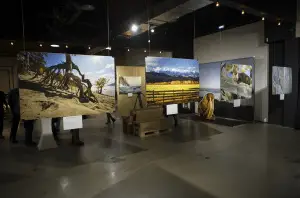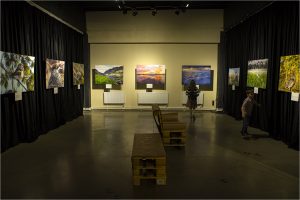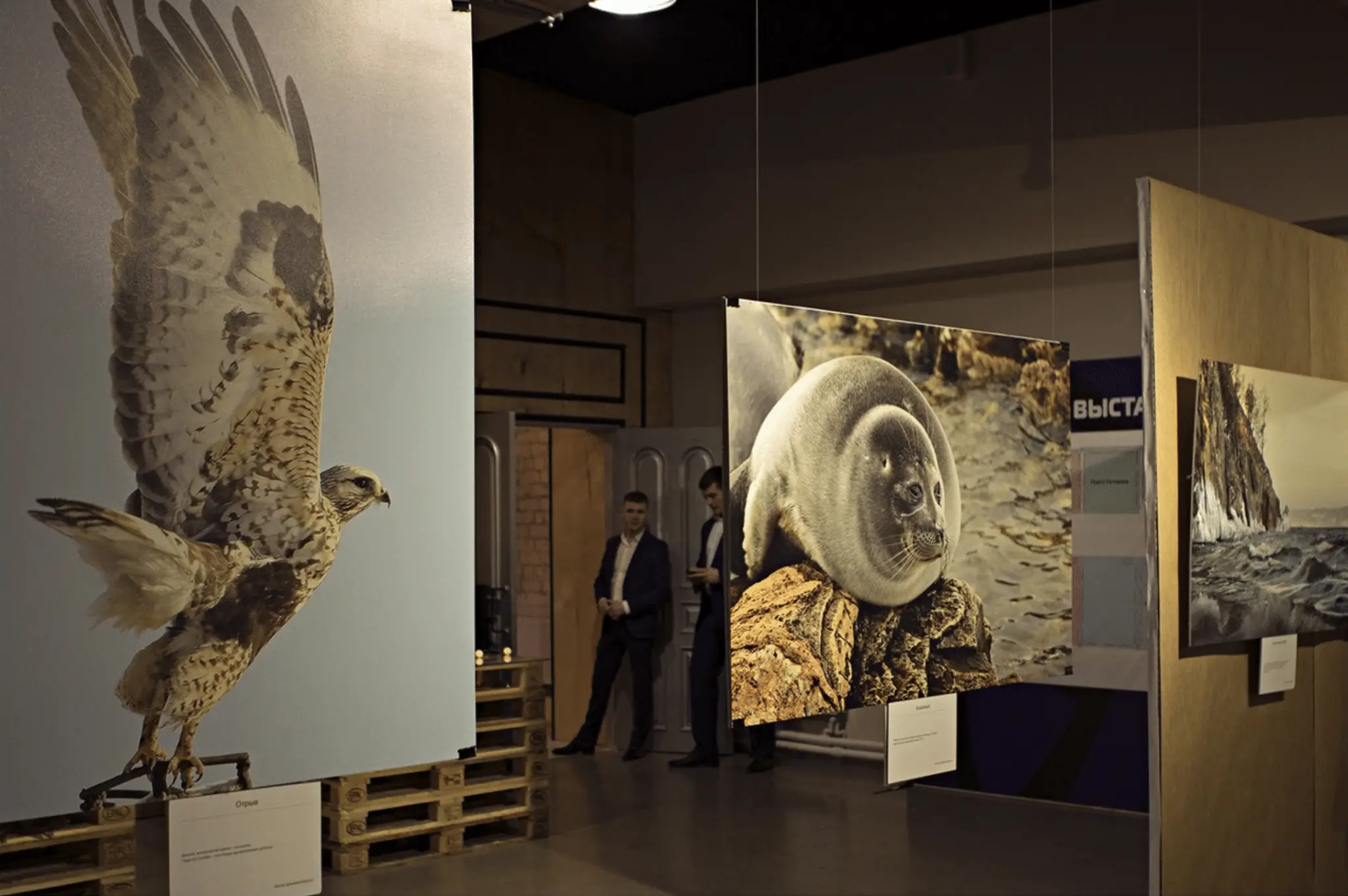Recently, Irkutsk’s Dorenberg Art Factory hosted an environmentally focused photo exhibition, showcasing over 100 photographs taken throughout Russia by the country’s most renowned nature photographers.
The exhibit was a part of Primeval Russia (Первозданная Россия), a national nature festival, which is celebrating its 5th anniversary this year. The festival is promoted as a platform for experts to exchange ideas in the fields of photography, environmental protection, and ecotourism.

For viewers, the exhibits are meant to educate and inspire as well as facilitate dialogue on topics of Russia’s environment, conservation, and tourism. In Irkutsk, the photo exhibition was held at the Dorenberg Art-Factory. Here, two generously-sized rooms were decorated with dozens of photographs. Photos in the exhibit were organized by location, ranging from the tundra, to the taiga, and from landscapes to micro-organisms.

I noted that the Irkutsk exhibition made a point to highlight photos from the Baikal region, which made up almost a quarter of the exhibit. Upon entering the exhibition rooms, large images of icy Baikal, nerpa seals, and local mountainscapes hung from the ceiling, taken by renowned local photographers such as Evgeny Domanov and Stanislov Tolstnev. Not surprisingly, these photographs quickly became the locals’ favorites – they were visibly the highest trafficked areas among visitors, who marvelled at the beauty of their own backyard.
For years, Baikal has been a source of the city’s pride, and serves as the basis for many aspects of local culture and tradition. For many Russians in the area, Lake Baikal is an annual summer destination, where their summer dachas are located. The region is also important for the Buryat nation, which, since the seventeenth century, has sustained its culture through hunting, gathering, and fishing around Baikal, as well as by using its iron resources to produce weapons, and practicing Shamanism, a religion characterized by its connection to nature.
Given the lake’s historic importance, the environmental conservation movement is popularly supported by locals. In 2012, for instance, local activists finally brought about the closure of the Baikalsk Paper and Pulp Factory, the lake’s primary source of pollution. The environmental dialogue is continuing to grow locally as opportunities for ecotourism in the area are met with concern for the pollution that tourism is generating.

Primeval Russia is itself playing a part in the generation of interest in ecotourism as it toured internationally in 2017. Domestically, however, and especially in Irkutsk, the exhibit is welcomed with a sense of cultural pride and patriotism.
The Baikal Ecological Society largely organized the Irkutsk exhibition. In addition to curation, the organization offered a variety of workshops, lectures and activities centered around environmental advocacy, volunteer opportunities, and the promotion eco-friendly practices for Irkutsk residents of all ages.

The location of the showcase, the Dorenburg Art Factory, especially reflects the forward-thinking character of the exhibition in Irkutsk. The buildings which now comprise the art space date back to 1890, when the successful merchant, Fedor Dorenberg, founded the first steam beer factory on what is now Barricade Street in Irkutsk. His venture was marked by creativity and entrepreneurship, and today, the space has been converted to a modern art complex with a mission to preserve and promote these qualities within the city.
Yet, despite the exhibit’s promotion of a progressive, eco-friendly mindset, it did not go unnoticed that the official sponsor for the festival in Irkutsk was the Irkutsk Oil Company, reminding us of the challenges in implementing eco-friendly practices which still exist today. The diversity of interests can also be reflected at the national level, where the exhibit is officially supported by the Ministry of Cultures, Ministry of the Environment, the powerful Russian Geographical Society, the Moscow City Government, the Federal Agency for Tourism, and the Federal Agency of Communications.
While locally successful in reminding residents of the natural treasures they hold, for others, the exhibit reflected interests of civil, social, patriotic, and economic development, which in some instances can be dissimilar from the stated environmental advocacy goals, reflecting the true range of issues at hand for the people of Irkutsk and Russia.







